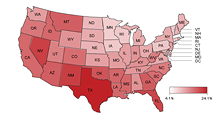House Dems unveil $894 billion health care bill
Plan would extend coverage to 36 million Americans and include a public option.
WASHINGTON (CNN) -- House Democratic leaders unveiled a sweeping health care bill Thursday that includes a more moderate version of the government-run public health insurance option.
The measure -- a combination of versions passed by three House committees -- includes what is termed a "negotiated rate" public option. It will cost $894 billion over 10 years and extend insurance coverage to 36 million Americans, according to House Speaker Nancy Pelosi's office.
The bill guarantees that 96% of Americans have coverage, Pelosi's office claimed. The claim is based on an analysis by the non-partisan Congressional Budget Office.
"Today, we are ... laying the foundation for a brighter future for generations to come," Pelosi said on Capitol Hill.
"For Americans struggling with the cost of health care, this is an urgently needed bill," said House Majority Leader Steny Hoyer, D-Maryland. "This is an idea whose time has come."
Pelosi's office said the bill would cut the federal deficit by roughly $30 billion over the next decade. The measure is financed largely through a combination of a tax surcharge on wealthy Americans and spending constraints in Medicare and Medicaid.
Medicare expenditures would be cut by 1.3% annually, the speaker's office claimed.
Under the House plan, health care providers would be allowed to negotiate reimbursement rates with the federal government, according to Democratic leadership aides.
Pelosi and other liberal Democrats had argued for a more "robust" public option that ties reimbursement rates for providers and hospitals to Medicare rates plus a 5% increase. Several Democrats representing rural areas, however, complained that doctors and hospitals in their districts would be shortchanged under such a formula.
The Democratic leadership is working to post the text of the final bill online early next week and has agreed to give members 72 hours to read it before a vote. Under that timetable, the House would begin debating the bill at the end of next week.
Any bill passed by the House of Representatives will eventually have to be merged with legislation passed by the Senate. Both chambers would then have to pass a revised measure before sending it to President Barack Obama to be signed into law.
One thorny issue remaining to be resolved among House Democrats is the final abortion language in the bill. Michigan Democrat Rep. Bart Stupak has been pushing leaders to add stronger language prohibiting the use of federal money to pay for abortions under new health care reforms.
Stupak has vowed that if he isn't allowed a vote on the issue, a group of 40 anti-abortion Democrats will work to block the bill from getting to the House floor.
Leadership aides admit they still need to find compromise wording on abortion, but are confident the issue will be resolved by the time the bill gets to the floor.
Do you have a job because of the president's $787 billion stimulus package? We want to hear from people whose jobs have been created or saved by the American Recovery and Reinvestment Act. Please e-mail your storiesto CNNMoney.com and you could be part of an upcoming article. For the CNNMoney.com Comment Policy, click here. ![]()



